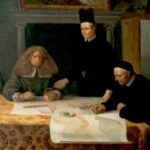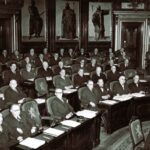The Quetelet Center for Quantitative Historical Research is an interfaculty and interdisciplinary service centre that offers advice and expertise on the use of historical data that can be studied statistically or in map form.
Researchers from all disciplines and the general public can come to us with questions about the use of quantitative and quantifiable sources on Belgium's past.







In the spotlight
For centuries, large landowners determined how land was managed and who was allowed to live off it. In a recently defended dissertation, Sander Berghmans (UGent) reveals the economic strategies they pursued and how these choices shaped local economies and social relations. The Quetelet Center provided historical map material for this research.
The International database on Democratic Electoral Systems (DES) has recently been expanded with election data from the years 1919-1945, including data on Belgium. The database provides new insights into the impact of electoral systems on democratic stability and party fragmentation. For the addition and analysis of the Belgian data, researchers utilized the cartographic tools of LOKSTAT.
Lordships were a key form of governance in the Low Countries during the Middle Ages and early modern period. However, the reasons for their varying distribution across different regions remain insufficiently understood. A comparative study conducted by Margreet Brandsma and Jim Van der Meulen (UGent), partly based on LOKSTAT data, demonstrates that soil fertility and proximity to trade routes played a crucial role in their presence and distribution.
Did you know that small water pits once formed the backbone of a thriving flax industry in the Land of Dendermonde and the Land of Waas? These so-called flax retting pits, now almost forgotten, played a crucial role in textile production and the regional landscape. Lies Vervaet unravels their hidden history and, with the help of sources such as LOKSTAT, demonstrates how they can still be valuable today for nature, water management, and heritage conservation.



